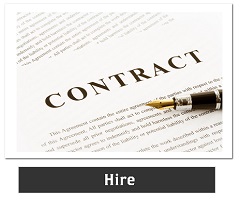
By John Tishler
Many EB-5 offerings depend on the fundraisers who locate and introduce eligible investors to projects. Persons who perform this service are potentially subject to regulation under the broker-dealer laws of the United States and any state in which they conduct these activities. To date, most EB-5 capital has been raised without the assistance of registered broker-dealers. However, recent enforcement trends are setting the stage for increasing involvement of licensed broker-dealers in the EB-5 industry.
Background
The Securities Exchange Act of 1934, as amended (Exchange Act), defines a “broker” as “any person engaged in the business of effecting transactions in securities for the account of others.” Brokers (and dealers, a separately defined term) are required to register with the Securities and Exchange Commission (SEC) and the states in which they conduct business. Once registered, they are required to become members of the Financial Industry Regulatory Authority (FINRA). As registered broker-dealers and FINRA members, broker-dealers are subject to extensive regulatory requirements and oversight.
Role of a Broker-Dealer
A broker-dealer with experience in EB-5 funding should be consulted during the early planning stages for a project so that the broker-dealer has the opportunity to perform an initial evaluation of the sponsor and the project before accepting the engagement. The broker-dealer will typically work closely with the corporate/securities attorneys for the project to perform initial due diligence and assess the likelihood of success. The broker-dealer will review the project’s marketing, offering and subscription materials, both in English and the investors’ native language(s), and will conduct due diligence to help ensure the accuracy of these materials.
Once preparation is complete, the broker-dealer disseminates the project marketing materials and offers documents to their referral resources in the United States and overseas. The broker-dealer will also manage the processing of the investors from submission of subscription documents through funding of the investment capital to the project.
Consequences of Use of Unlicensed Broker-Dealers
The involvement of a person required to be registered as a broker-dealer, but who is not so licensed, creates a number of risks to the unregistered party, to the issuer of the securities and its principals, and to the EB-5 investors, including:
- The possibility of enforcement actions brought by the SEC, state regulatory agency or U.S. or state prosecutors;
- The risk that investors may not be able to demand return of their investments (known as a rescission right);
- The associated costs of defending government and/or private-party actions;
- Reputational damage arising from such actions; and
The risk that a lack of investor interest will exist in current or future offerings.
Recent SEC Enforcement Activity
As of the date of this writing, the SEC has not publicly announced any enforcement actions directly related to broker-dealer activity in EB-5 offerings. However, certain participants in EB-5 transactions have been issued subpoenas from the SEC Division of Enforcement requesting information about their fundraising activities, including parties to whom such participants paid commissions.
Additionally, SEC enforcement activities outside the EB-5 industry indicate an increasing enforcement focus by the SEC on broker-dealer activity.
Alternatives for Joining the Broker-Dealer Regulatory Framework.
There are a number of alternatives for involving a licensed broker-dealer, and therefore removing the risk associated with paying commissions and other transaction-based compensation to unlicensed persons.
-
Register as a Broker-dealer

This alternative requires the creation of an affiliated entity to register with the SEC and each state in which it conducts business, join FINRA, employ individuals with the requisite securities licenses and meet substantial ongoing regulatory, oversight and capital requirements. Smaller regional centers and project sponsors may find this alternative unattractive due to the initial costs and the substantial ongoing compliance costs.
-
Purchase a Broker-dealer

This is similar to a registration, but a purchaser may be able to take advantage of the selling firm’s infrastructure. At any given time, there are registered broker-dealer firms for sale. These firms may have ongoing business or may be winding down their business. The buyers need to comply with various rules in connection with purchase of a broker-dealer, but these procedures are generally less burdensome than obtaining a new license.
-
Affiliate with a Broker-dealer

Individuals who obtain appropriate licenses from FINRA as a registered representative may affiliate with a registered broker-dealer firm and receive transaction-based compensation through the registered broker-dealer. Their registrations will be personal to them and therefore not an asset of a regional center or project sponsor that employs such person.
-
Hire a Broker-dealer

For many in the EB-5 industry, this will be the most attractive option. Just as a company that wants to go public will retain a broker-dealer to underwrite the IPO, EB-5 issuers can retain a broker-dealer to assist in raising EB-5 funds.
Until recently, there were few, if any, broker-dealer firms conducting business in the EB-5 space. However, there are now broker-dealer firms offering to provide fundraising services to regional centers and project sponsors looking to raise EB-5 capital. Surprisingly, the cost to hire a licensed firm is often less than the commissions that are routinely paid to the unlicensed marketing agents raising money for the majority of EB-5 projects. This is, in part, because the fees that can be charged by a registered broker-dealer are limited by FINRA.






